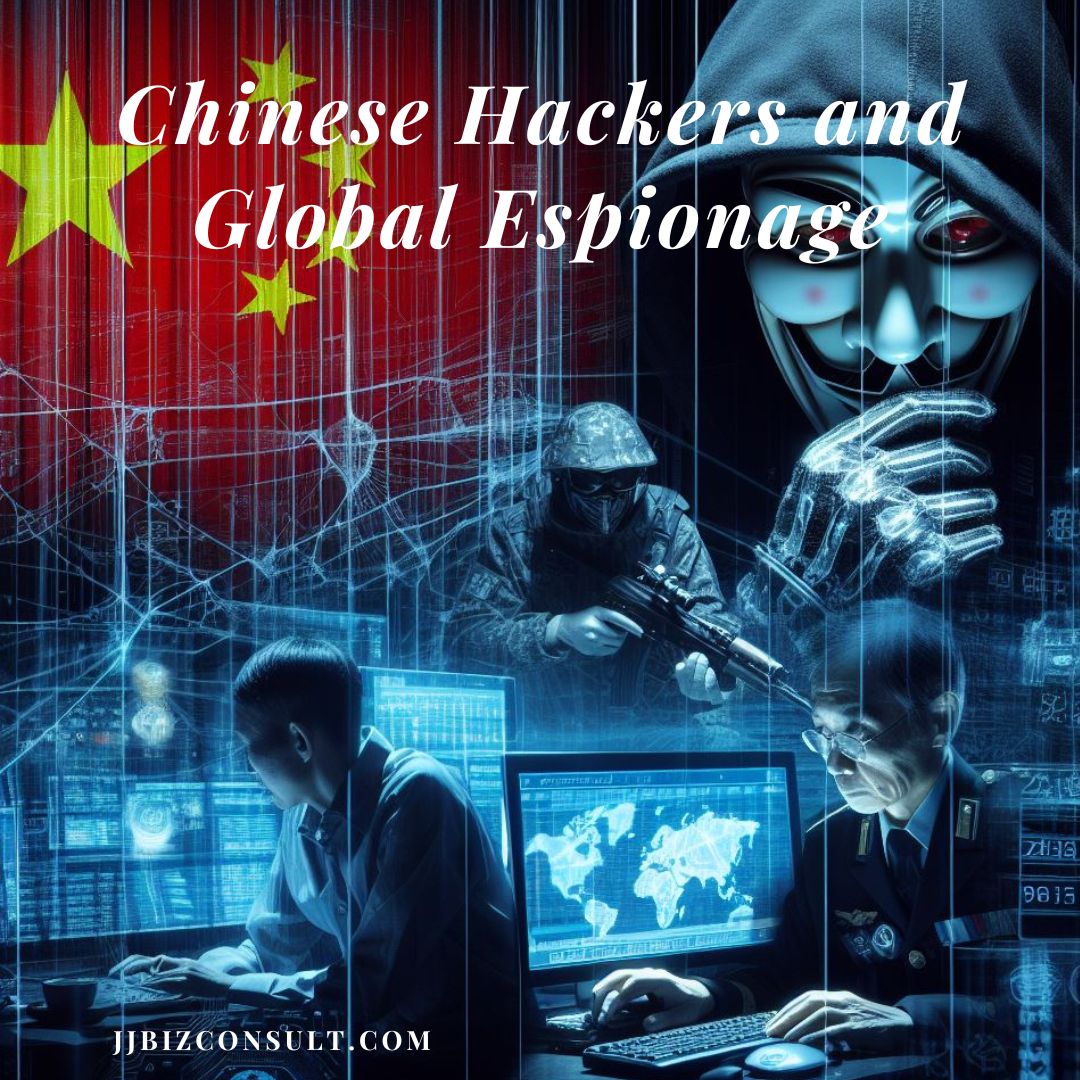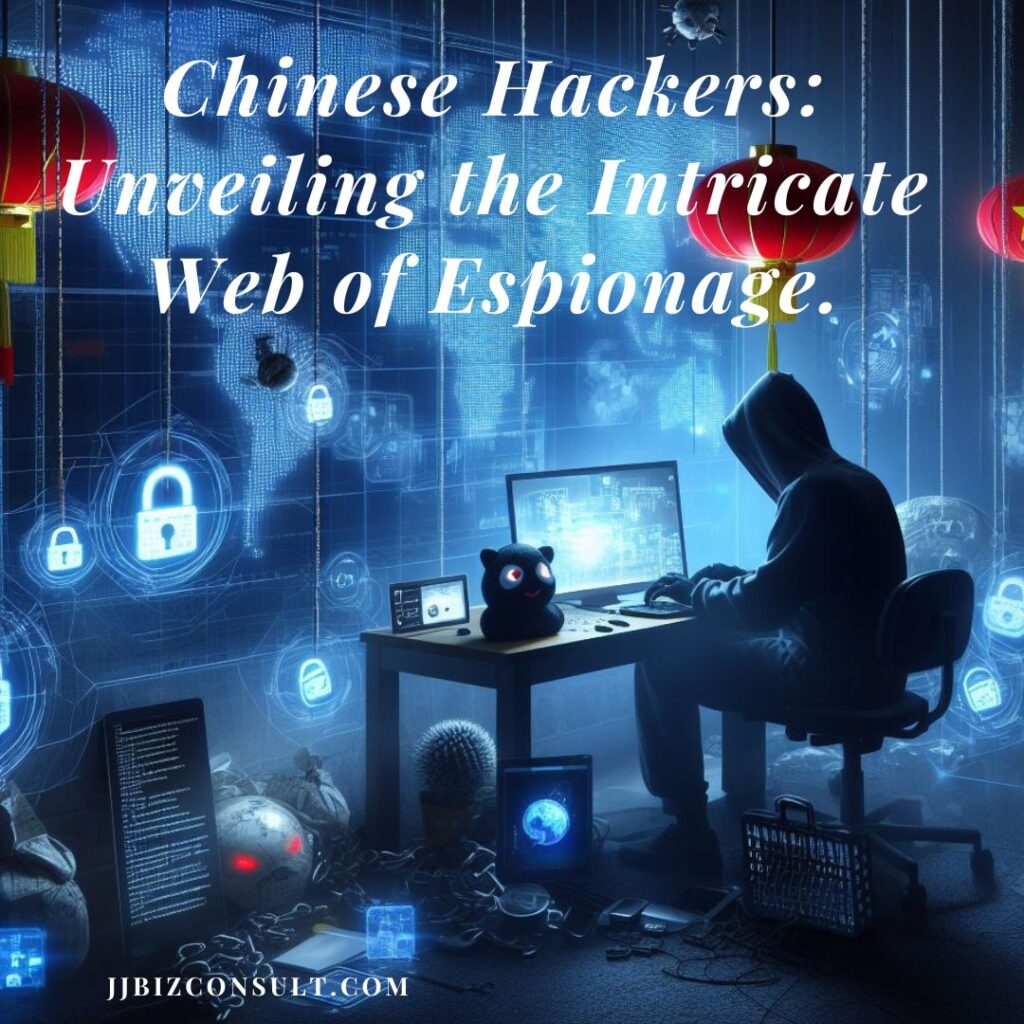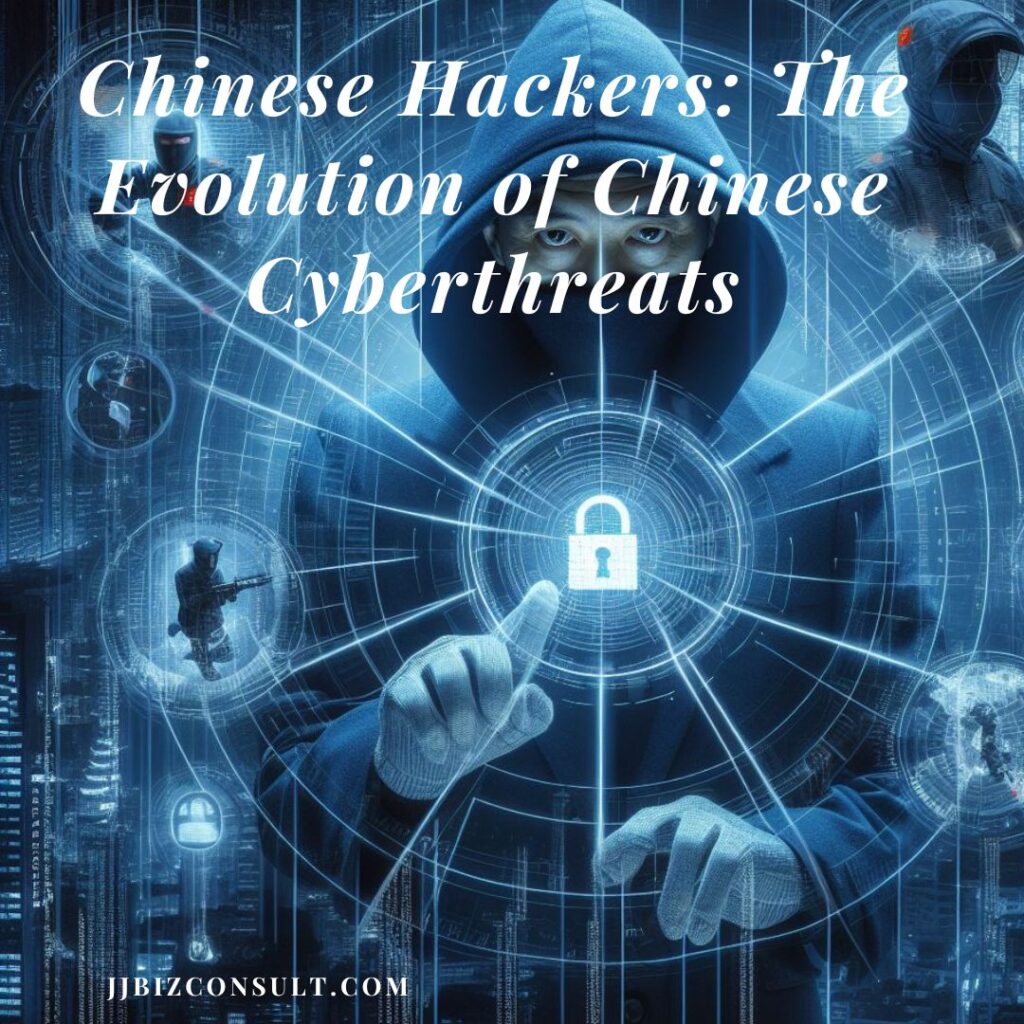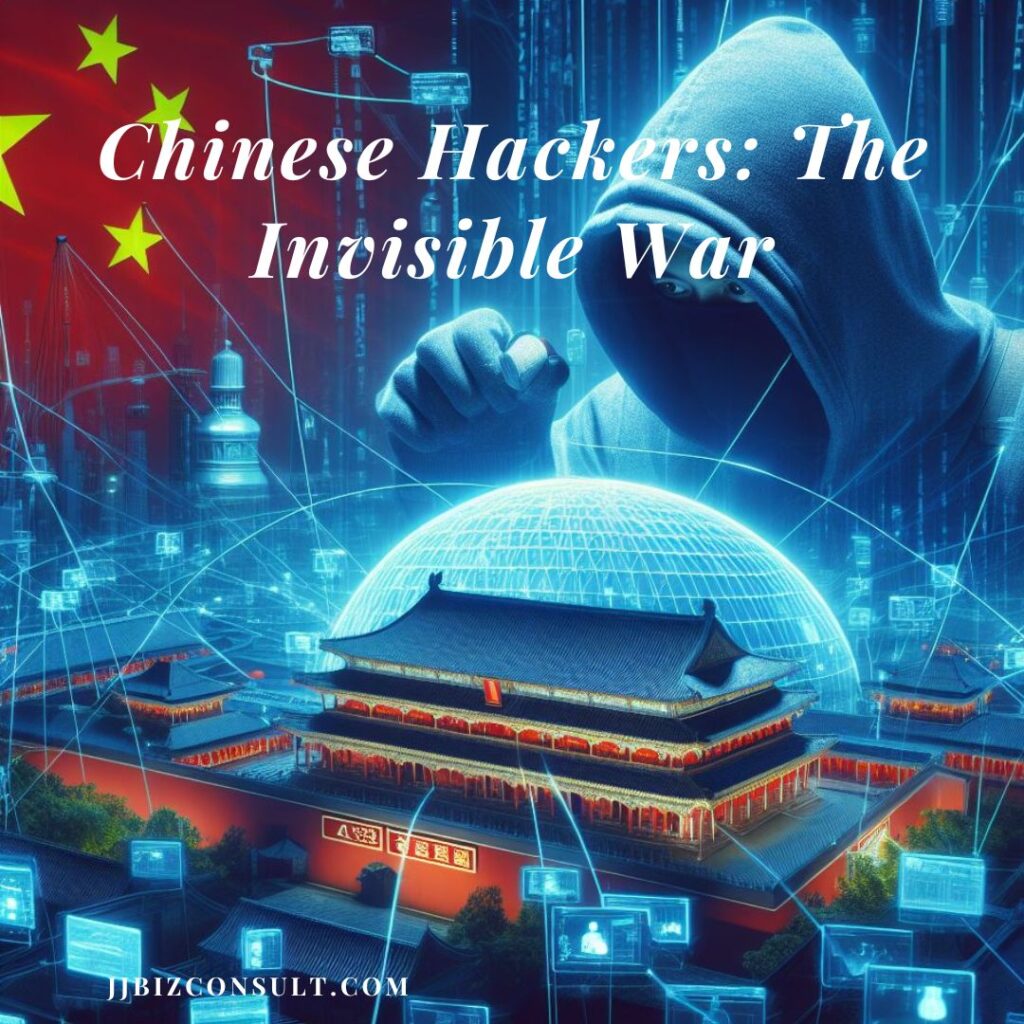Chinese Hackers and Global Espionage: Unveiling a Shadowy Realm

The Sordid Underbelly of Chinese Hackers.
The opulent hotel gleamed, a monument to luxury with a pulsating karaoke bar – the perfect venue, the CEO of the Chinese hacking company believed, to celebrate Lunar New Year and curry favor with government officials. But there was one glaring issue, his deputy remarked.
“Who goes there?” the message scrawled, “The girls are so ugly.”
This anecdote, straight out of a leaked document from a private Chinese hacking contractor, lays bare the sordid underbelly of China’s hacking industry. The documents, a bombshell investigative report by the Associated Press (https://apnews.com/video/crime-united-states-government-china-government-hacking-china-ad2c2c1d54654b09aeba7297c3cc071e), reveal an industry riddled with shady business practices, disgruntled employees, and lax security protocols.
Private Hacking for Hire: A Lucrative Shadow Market
These private hacking contractors, as the AP report details, are companies that specialize in stealing data from foreign entities to sell to the Chinese government. Fueled by China’s insatiable demand for overseas intelligence over the past two decades, this industry has ballooned into a vast network of hackers-for-hire, infiltrating hundreds of systems outside China’s borders.
This blog post delves deeper into this recent exposé, exploring the motivations, methods, and global impact of Chinese hackers…
Chinese Hackers: Unveiling the Intricate Web of Espionage.

In the shadowy realm of cyberspace, where ones and zeros dance to the tune of clandestine agendas, Chinese hackers have etched their mark. Their digital footprints traverse continents, infiltrating networks, and leaving a trail of intrigue and suspicion. Let us delve into this murky world, where bits and bytes wield power more potent than any weapon.
The Breach That Shook the Globe
In a revelation that sent shockwaves through the cybersecurity community, Mandiant, a Google-owned firm, exposed a cyber espionage campaign of unprecedented scale. Suspected state-backed Chinese hackers exploited a vulnerability in Barracuda Networks’ Email Security Gateway, granting them access to networks across the globe. Government agencies, foreign ministries, and private sector organizations fell prey to their insidious tactics. The impact was felt far and wide, with 55% of affected organizations hailing from the Americas, 22% from Asia Pacific, and 24% from Europe, the Middle East, and Africa.
Espionage, Influence, and Intoxication
Behind the scenes, a sordid culture fuels China’s hacking industry. Leaked internal documents reveal a web of connections, lavish banquets, and late-night karaoke sessions. Hackers-for-hire wine and dine government officials, seeking favor and business. Their arsenal includes not only code but also alcohol and sex. Yes, you read that right. The pursuit of influence intertwines with the pursuit of secrets. It’s a heady mix that blurs the lines between state-sponsored espionage and personal indulgence.
From Equifax to COVID-19 Research
Chinese hackers have left their fingerprints on high-profile breaches. In 2020, four members of the Chinese military infiltrated Equifax, pilfering personal information from millions of Americans. The Justice Department pointed an accusatory finger at Beijing, implicating the Chinese state in one of the largest data thefts in history. And when the world grappled with COVID-19, these same hackers targeted vaccine research. Intellectual property worth hundreds of millions of dollars vanished into the digital ether, leaving companies worldwide reeling from the loss.
The Balancing Act
As U.S. Secretary of State Antony Blinken embarked on a delicate mission to repair ties with China, news of the breach emerged. The timing couldn’t have been more precarious. Diplomacy danced with cybersecurity, and the stakes soared. The delicate balance between cooperation and confrontation hung in the balance. The Chinese spy balloon incident over the United States added another layer of tension, postponing Blinken’s visit indefinitely.
Chinese Hackers: The Evolution of Chinese Cyberthreats

China, with its vast population and growing technological prowess, has emerged as a formidable player in the world of cyberwarfare. Let’s delve into the intriguing history of Chinese hacking, from its early days to the present.
The Birth of Chinese Hacktivism
Chinese hackers first made waves during the Kosovo conflict in 1999. In an act of digital patriotism, they retaliated after the U.S. accidentally bombed the Chinese embassy in Belgrade, resulting in the deaths of three Chinese reporters. These patriotic hackers defaced U.S. government websites, condemning NATO’s actions. Interestingly, China’s Communist Party newspaper labeled these attacks as “web terrorism” and “unforgivable acts violating the law”
From Disruption to Espionage
In the early 2000s, Chinese hackers escalated their activities. The collision between a Chinese fighter plane and a U.S. reconnaissance aircraft led to a cyber showdown. Both Chinese and American hackers engaged in disruptive attacks, with the Chinese targeting thousands of U.S.-based websites, including the White House site. However, China took a surprising stance—officially discouraging further attacks against U.S. sites. This marked a shift from disruptive hacktivism to covert cyber espionage .
Chinese Hackers: The Rise of APTs
Advanced Persistent Threats (APTs) became China’s weapon of choice. These state-sponsored hacking groups operate with precision and persistence. Some notable APTs include:
- PLA Unit 61398 (APT1): Infamous for stealing intellectual property and sensitive data.
- Buckeye (APT3): Targeted corporations and governments worldwide.
- Red Apollo (APT10): Focused on espionage and cyber theft.
- Double Dragon (APT41): Blurred the line between state-sponsored and criminal hacking .
Save 30% on ALL annual invideo studio plans with code IVStudio25!
Chinese Hackers: Espionage and Geopolitics
China’s cyber aggression evolved. They breached Australian security agency blueprints and targeted critical infrastructure. U.S. intelligence agencies suspect Chinese meddling in elections, employing spear-phishing attacks. The Green Army, a nationalist hacker alliance, played a pivotal role in shaping China’s hacking landscape .
The Invisible War Continues
As China’s cyber capabilities grow, the world grapples with an invisible war fought not with tanks but with lines of code. The motives—patriotism, profit, or power—remain shrouded. In this digital theater, the stakes are global, and the consequences immeasurable.
Conclusion: Chinese Hackers: The Invisible War

Chinese hackers operate in the shadows, their keystrokes echoing across firewalls and routers. Their motives remain shrouded—whether driven by patriotism, profit, or both. As nations grapple with the digital frontier, the battle rages silently. The war is waged not with tanks and missiles but with lines of code and zero-day exploits. In this invisible theater, the stakes are global, and the consequences immeasurable.
China’s Response to Cyber Espionage Accusations
China’s stance on cyber espionage accusations has been multifaceted, reflecting both denial and counterarguments. Let’s explore how China has reacted to these allegations:
- **Denial and Dismissal:
- China consistently denies any involvement in cyber espionage activities. They often label such accusations as baseless and politically motivated.
- Spokespersons from China’s foreign ministry have publicly criticized the United States, urging them to stop their own cyber espionage and refrain from smearing other countries under the pretext of cybersecurity.
- In the past, China has reacted furiously to U.S. indictments of Chinese hackers, dismissing the allegations as preposterous and accusing the U.S. of double standards.
- **Challenging the Narrative:
- China portrays itself as a victim of cyberattacks rather than a perpetrator. They highlight incidents where their systems have been compromised and emphasize the need for international cooperation to combat cyber threats.
- Chinese officials argue that the focus should be on collaboration rather than finger-pointing. They advocate for a global effort to enhance cybersecurity and prevent cybercrime.
- **Economic and Geopolitical Context:
- China’s cyber activities are often viewed through the lens of its economic and geopolitical ambitions. As China seeks technological know-how to power its economy, accusations of stealing trade secrets become a sensitive issue.
- The U.S. perceives China’s actions as an attempt to gain an advantage in key industries, potentially challenging American dominance. This tension underscores the broader struggle between the two nations.
- **Selective Targeting:
- China has selectively responded to specific cases. When accused of cyber espionage, they often question the evidence and context surrounding the allegations.
- While denying involvement in large-scale cyberattacks, China acknowledges the need for cybersecurity measures and cooperation at the global level.
In summary, China’s response to cyber espionage accusations oscillates between denial, challenging the narrative, and advocating for collaboration. As the invisible war in cyberspace continues, both sides grapple with the complexities of technological competition and national security.
The U.S. Government’s Response to Chinese Hacking
The U.S. government has taken a firm stance against Chinese hacking activities, particularly those linked to state-sponsored cyber espionage. Here are some key points regarding their response:
- Disruption of Botnets:
- In January 2024, the U.S. government executed a court-authorized operation to disrupt a botnet known as “KV Botnet.” This botnet consisted of hundreds of U.S.-based small office/home office (SOHO) routers hijacked by People’s Republic of China (PRC) state-sponsored hackers.
- The hackers used these infected routers to conceal the origin of further hacking activities directed against critical infrastructure organizations in the United States and other countries.
- The operation removed the KV Botnet malware from the routers and severed their connection to the botnet, preventing further malicious activities.
- Warning Against Cyber Threats:
- The FBI has consistently warned about the threat posed by Chinese state-sponsored hacking groups. These groups target key public infrastructure, including the power grid and pipelines.
- The dismantling of the “Volt Typhoon” group, which had been conducting cyberattacks on critical infrastructure, demonstrates the U.S. government’s commitment to countering such threats.
- Acknowledging China’s Intentions:
- FBI Director Christopher Wray has emphasized that China’s hackers are pre-positioning themselves to cause real-world harm to American citizens and communities in the event of conflict.
- The U.S. perceives China’s cyber activities as part of a broader strategy to gain an advantage in key industries and challenge American dominance.
- Collaboration with Private Sector:
- The U.S. government recognizes the importance of partnership with the private sector. Victim reporting is crucial in fighting cybercrime, from home offices to critical infrastructure.
- By wiping out the KV Botnet and disrupting cyber threats in real time, the Department of Justice aims to safeguard national security.
In summary, the U.S. government remains vigilant in countering Chinese hacking efforts, aiming to protect critical infrastructure and the security of its citizens.
Disclaimer: The information presented in this blog post is derived from external sources and does not necessarily reflect the author’s personal opinions.
Apple iPhones Security: Power Up Your Peace of Mind with Stolen Device Protection





